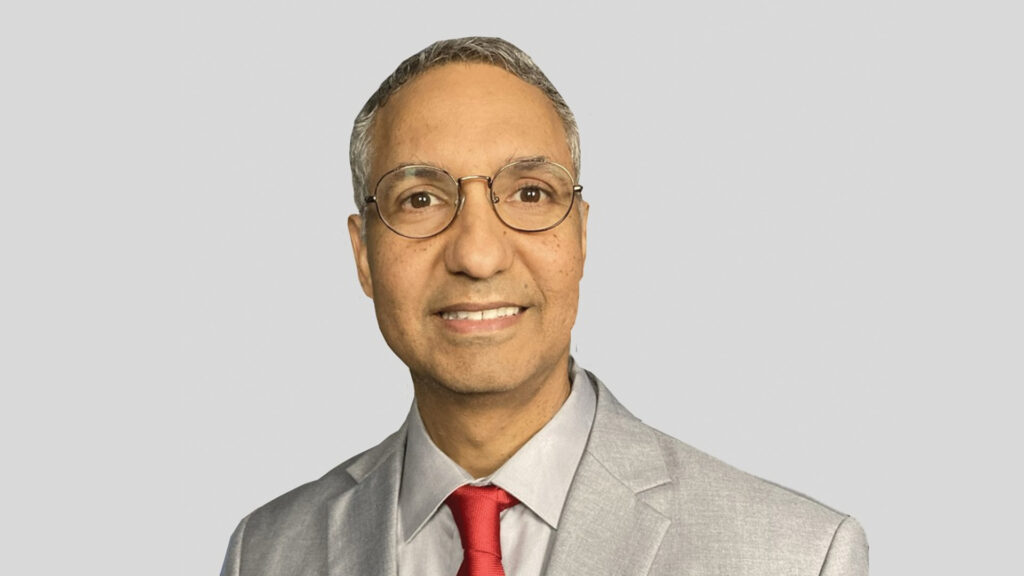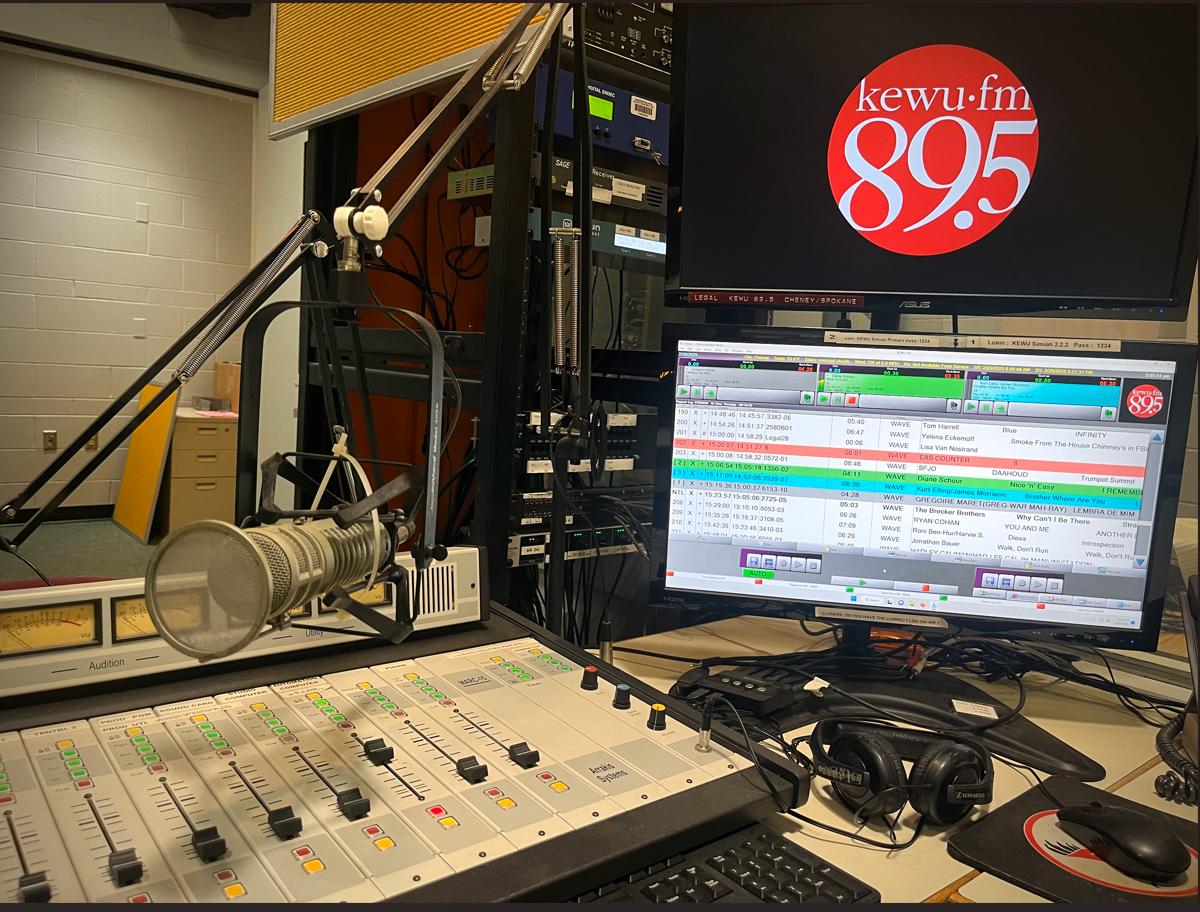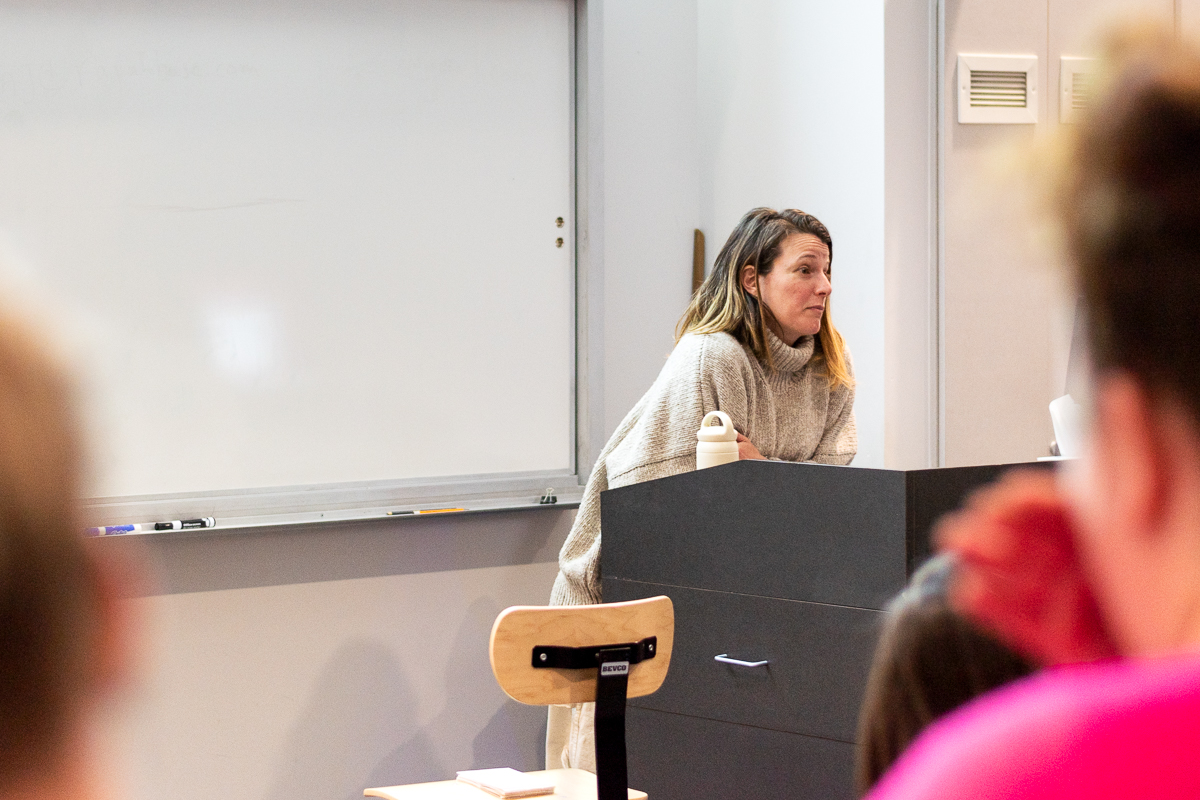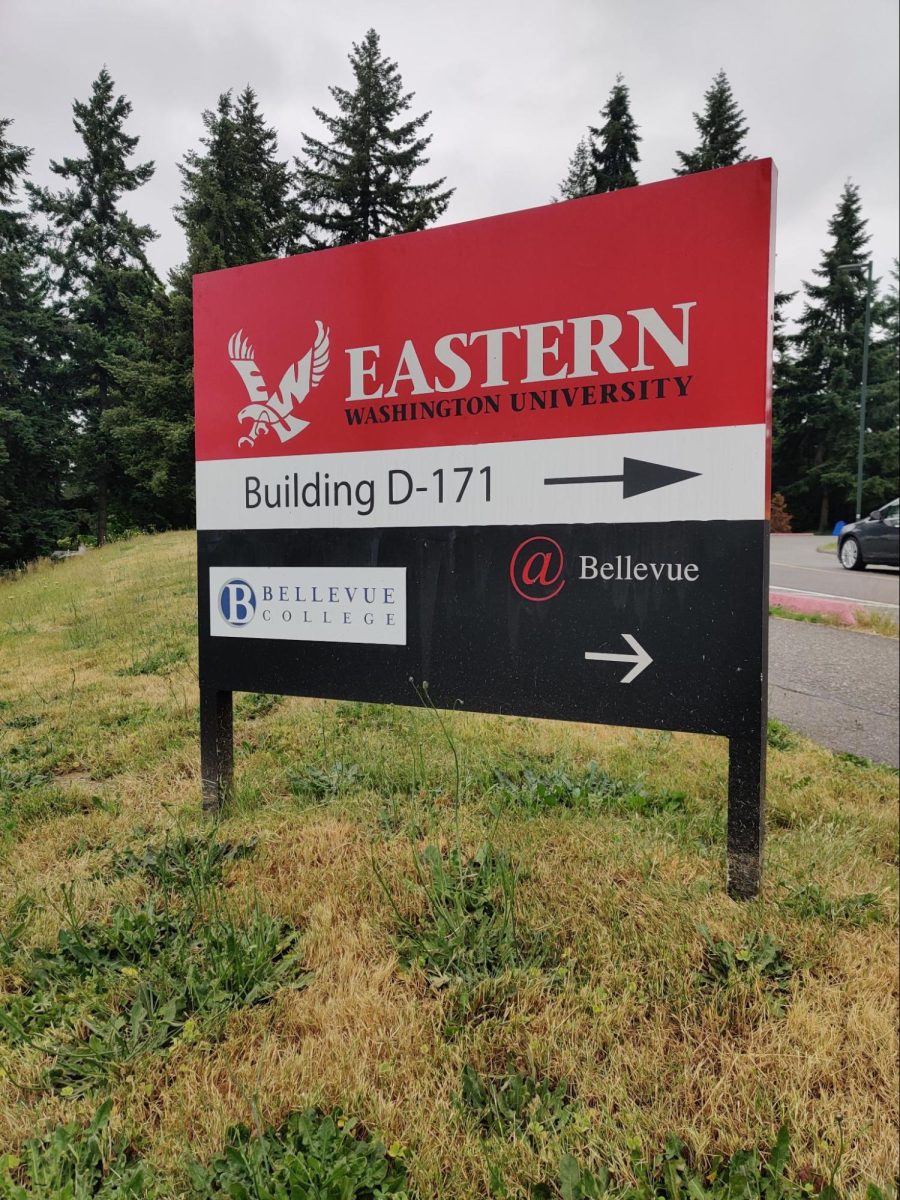After numerous instances of slurs and hate speech being used on Eastern Washington University’s campus, students and staff of the university explored the topic of free speech at an Eagle Speak event on Feb. 28.
Last quarter, on Oct. 19, police said Justin Hale hurled hate speech and threats at students of the university. He was later arrested on Oct. 23, and pleaded guilty to harassment on Dec. 7.
According to court documents, Hale was sentenced to 3 months in jail, with 15 days of the sentence exchanged for 120 hours of community service. Hale is also prohibited from coming within 1,000 feet of Eastern Washington University property until Dec. 7, 2028.
In wake of this incident on campus, ASEWU and the university’s Office of Student Rights and Responsibilities organized “Eagle Speak,” which was advertised on sandwich signs as “a conversation on free, illegal, and hate speech.”
Colleen Vandenboom, the director of Student Rights and Responsibilities at Eastern Washington University, began the event with a game of “trivia.” Vandenboom showed slides of different scenarios and asked the attendees to guess if the scenario was a student code violation, a criminal violation, both, or neither.
An example used was a student on Snapchat expressing anger toward the school for being cut from the soccer team, which was deemed neither a student code violation nor a criminal violation.
However, the last two scenarios proposed by Vandenboom directly mirrored the events leading up to the arrest of Justin Hale last quarter. Vandenbloom used the example of a visitor coming onto campus and making remarks about LGBTQ+ students, which alone was also deemed neither a student code violation nor a criminal violation. But then suggested that if this person started threatening students, it would become both a code violation and a criminal violation.
Vandenboom then introduced Aaron Terr, the director of public advocacy at the Foundation for Individual Rights and Expression, as the speaker for the event.
Terr began his presentation by painting a picture of a world without free speech.
“Imagine a country where you can’t speak badly about the president, picture a world where journalists are silenced,” Terr said. “If you’re interested in these things, you’re interested in freedom of speech.”
Terr then began to use historical examples of freedom of speech being important.
“In 1835, the anti-slavery society began sending out pamphlets at the post office, and people were outraged,” Terr said. “3,000 people raided the post office in Charleston, South Carolina. They knew the power of freedom of speech.”
The conversation then shifted towards censorship, with Terr pointing out that censorship of words negatively affects everyone.
“You can’t have censorship without a censor,” Terr stated. “Censorship, like a poison gas, is a powerful weapon to use on your enemies until the wind shifts.”
Just like trying to find a line to draw with censorship, Terr explained that hate speech is also hard to define.
“It’s different from person to person and it depends on the individual’s views and bias,” Terr said. “Who gets to decide if something is deemed as hurtful? If we limit ‘hate speech’ we invite censorship into all speech.”
Not all speech is protected by law, however.
“The first amendment doesn’t protect all speech,” Terr said. “One example is true threats, a serious intent to do bodily harm. Incitement, or calling for others to harm someone. Defamation, is another.”
Terr also mentioned harassment, which Justin Hale was charged with.
“It’s about conduct, not about speech, but it’s conduct that is unwelcome and targeted based on a protected class.”
At the end of the presentation, Terr answered a few questions from EWU staff and faculty.
Melanie Potts, the director of Housing and Residential Life at the university, asked about how university staff should handle slurs written around the different residential areas, particularly on the whiteboards.
“It’s tough preventing people from seeing this language,” Terr responded. “The proper way isn’t to punish the students writing these things, the best way is counter-speech.”
Terr then explained how, although some may be upset by these messages, in order to ensure free speech, everybody has to be able to have that freedom.
“There’s no way to draw a boundary on offensiveness,” Terr said. “But resources should be offered to those that are negatively affected.”
Naite Boham, the associate director of the Eagle Pride Center, asked about how the university can encourage students to utilize their freedom of speech when some police officers can infringe on those rights “and get a slap on the wrist.”
“Governments should be held accountable for violating rights, and they often are,” Terr said. “Qualified immunity says that you can only hold a government official accountable for violating rights that are officially established, and often that means in court.”
Ka’din Rahman, a student at EWU, attended the Eagle Speak event but left midway through the presentation.
“I feel like the speaker disconnected free speech from the rest of speech,” Rahman said. “He made the point that society has always been restricting speech from oppressed people. I don’t agree with giving a platform to the people that have always had it.”
Rahman then went on to detail ways that hateful rhetoric has infiltrated the campus.
“There was [Justin Hale] last quarter, the preacher guy last year, and there was an issue on [the social platform] YikYak.” Rahman said. “We have a serious issue here. We claim to be the most diverse university, but the diverse part of it can’t have a say.”
Boham also felt there could be some more clarification from the university after this event.
“I think this event was a good opportunity for students to learn more about their rights, and I encourage students to use their free speech to stand against hatred.” Boham said. “There is an opportunity for more conversations surrounding hate speech. I personally would love more tools to give to students who feel like they have a lack of free speech.”





















